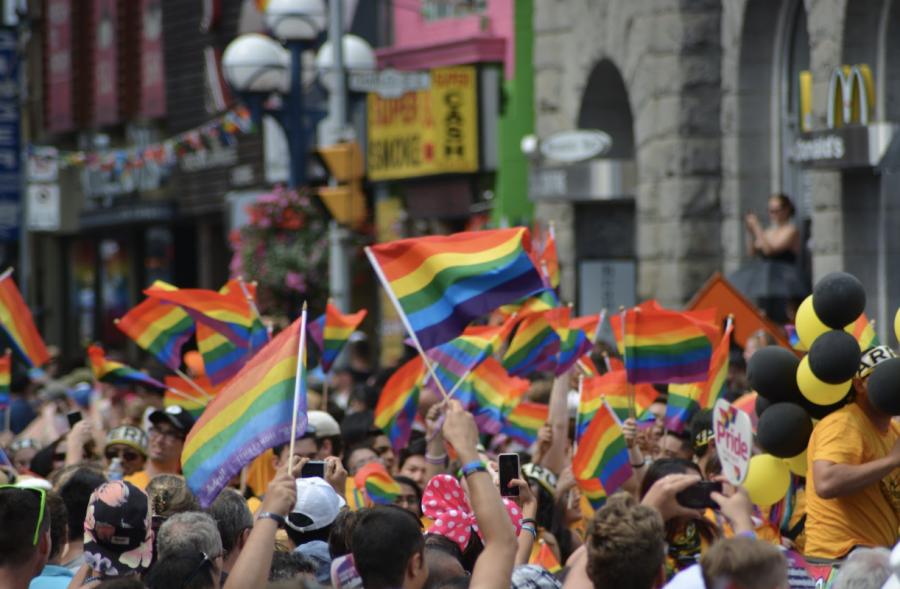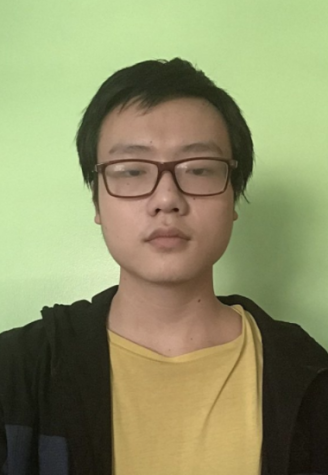A Place Safe from Silence
November 5, 2021
A girl shook head and cleared her mind of fear. Today was the day. She was going tell her best friend that she’s not straight. She took a deep breath and told herself it would be okay. But as she made her way anxiously across the crowded hallway, the courage she had gathered faded away. Trudging past the students around her, she felt her peers’ words piercing through her ears. Jokes about her sexuality struck her in the heart. Insults towards her community ached her soul. After some time, she finally found her best friend. But as she opened her mouth to speak, the words she had prepped hours for were now lodged in her throat. Smiling at her friend, she sat down beside her and waited in silence for their class to begin.
From micro aggressions to outright discrimination, members of the LGBTQ+ community regularly face injustice. Whether it’s being called slurs or being beaten, the hate received by the LGBTQ+ community is unacceptable. Thus, the GSA, or Gender Sexuality Alliance emerged in 1998 in San Francisco to advocate for the rights of the LGBTQ+ community. Currently, the organization remains active in many schools across the nation; the GSA at Great Neck South High School is advised by Ms. Joanne Greenberg, who is a firm believer in rights and equality. “What inspired me to become the adviser of the club was that I have a gay father as well as a gay daughter,” said Ms. Greenberg. “Thus, as a school social worker, this is a cause that I’m extremely dedicated towards.”
Initially, the GSA club was known as the Gay Straight Alliance Club. However, after the national organization changed its name to the Gender Sexuality Alliance to better reflect the LGBTQ+ community, the club at South soon followed. “This change makes sense,” said Mrs. Greenberg. “The name Gay Straight Alliance refers to being allies to support people of different sexualities, but it doesn’t address gender. With this change in name, the GSA could better embrace the members of the LGBTQ+ community.”
While the South High community is relatively respectful towards the LGBTQ+ community, it’s not perfect. Several students have reported being harassed or bullied because of their involvement in the community. “I remember in ninth grade on National Coming Out Day, my friends and I did rainbow face paint just for fun and laughs,” said senior Elizabeth Sokolova, a member of the GSA. “Then, when I was going home on the bus, someone called me a slur that is used to harass the LGBTQ+ community. It was extremely disrespectful, and I just thought, why?” Experiences similar to the one Sokolova recalled are the reasons why the GSA remains active.
The main purpose of the GSA club is to create a safe space for LGBTQ+ students. Members meet on Fridays to hang out and let loose. Sometimes they play games and watch videos about LGBTQ+ topics. Other times, they just sit around and talk about different issues currently faced by the LGBTQ+ community. While the club’s objective is to create a safe environment for LGBTQ+ students, it’s not exclusive. “The club is open to anyone in support of the LGBTQ+ community, not just students of LGBTQ+,” said Bobbie Chen, president of the GSA. “Our goal is to promote acceptance and allyship so that students may feel safe not only at the club but in the school community as well.”
Aside from creating a safe environment for LGBTQ+ students, the GSA also seeks to inform students around the school about the problems faced by the LGBTQ+ community. To further this goal, the GSA hosts several events throughout the school year that are intended to educate students about these important issues. Two of the most prominent events the GSA hosts are the Day of Silence and Love is Love. Love is Love is hosted around Valentine’s Day in February and involves the GSA handing out wristbands to students to remind them that love exists across all sexualities, not just through heterosexual romance. Day of Silence is hosted around Easter in April, and the GSA encourages students to go through their day without speaking to give them a sense of what members of LGBTQ+ communities go through when they’re forced to have their voice be silenced. Both events help the school community develop awareness and understanding of the pain and struggles of the LGBTQ+ community.
The LGBTQ+ community has faced many forms of discrimination in the past, and it will continue to face more challenges in the future. “There will always be those who choose to judge and hate, ” said Chen. “But even though we can’t expect everyone to support the LGBTQ+, we will always strive to promote change and make progress.”







